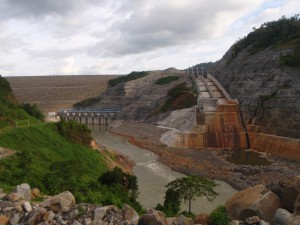In an unusual step, the Norwegian government’s Auditor General Office submitted an in-depth assessment that is highly critical of overseas assistance, focussing on hydroelectric dam projects in poor countries, to Parliament on June 25.
The Auditor General states: “Norwegian assistance to clean energy has not led to a noticeable increase in power generation and has contributed little to improving living conditions for the poor in those countries that have been prioritized for such support.”
More specifically, the audit finds that Norwegian energy assistance is “still primarily directed towards hydropower, although countries have ample opportunities to utilize solar and wind energy resources”. This bias makes recipient countries “more vulnerable to failure in energy supply” than a more balanced approach would have done. The support for transmission lines has created energy access for over 100,000 households, although “primarily the wealthiest households” have benefited from this. 
The various measures have not spurred private investment in the recipient countries, and their economic viability is weak.
“A stunning 12.26 billion Norwegian kroners has had little effect on electricity production, poverty alleviation and business creation in the prioritized target countries”, FIVAS, a Norwegian environmental organization and long-time partner of International Rivers, commented on the audit findings. “This confirms our view that too much Norwegian support has been tied up in hydropower. “
In his response to the audit, Norway’s Foreign Minister agreed that the rapid advancement of solar, wind and biomass power “will make it possible to expand the breadth of investment in clean energy”, and accepted the recommendation “to strengthen efforts to improve energy access in rural areas with small-scale renewable solutions”. At the same time, the Foreign Minister argued that among all technologies, Norway was still best placed to extend aid for hydropower.
The strong and unambiguous findings of the independent audit offer the government an opportunity to change course. A failure to do so in the interest of the country’s hydropower industry would dent the high credibility of Norway’s development assistance.
Read more: International Rivers

